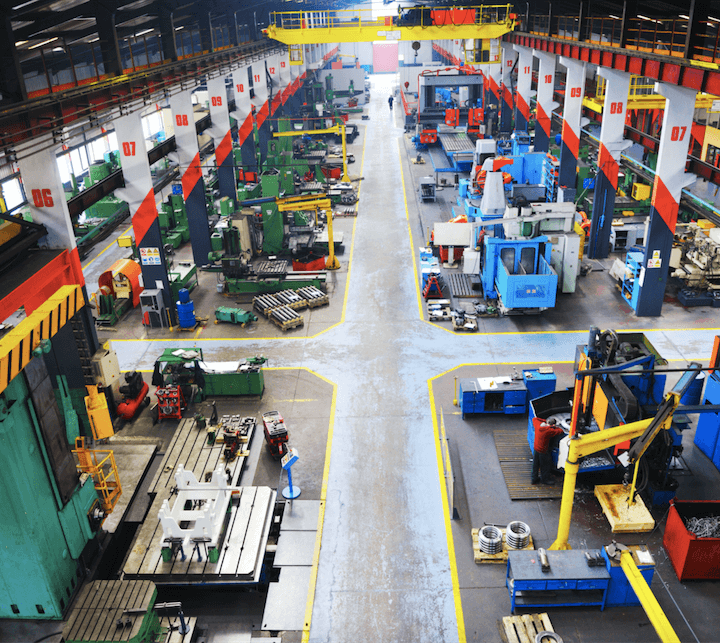While this election cycle has repeatedly emphasized the death of America’s manufacturing sector, there is actually a surplus of available manufacturing jobs that are going unfilled. Like the rest of the economy, advancements in the manufacturing sector require upgraded skill sets from workers, which presents both problems and possibilities for our economy.
Imported America
If you’ve ever bothered looking at the tags on your clothing, you probably noticed that they’re almost entirely made overseas, seemingly everywhere except the United States. In fact, many of the wares we buy at big box stores are overwhelmingly imported, especially from China. If you join those observations with what you hear politicians saying, you might be led to believe that nothing is really made in America anymore.
It’s true that we’re now the number two manufacturer in the world behind China. However, we remain the home of countless assembly lines that make products that, in general, are much more profitable than those imported from overseas. Make no mistake, the United States is still a manufacturing economy, and many of the jobs of the future will be in factories.
A new economy, a new factory
Before you conjure up images of sweaty folk toiling away in a rusty factory, take a moment to update your imagination. New factories are often glistening places full of cutting-edge technology that leverage robotics and other technology to quickly push out products to hungry consumers.
Let’s face it, we want our products and we want them now, just like our favorite rotten child from the big screen who wanted her daddy to expropriate the world’s most famous fictional chocolate factory. That’s not likely to change, and people will be employed making our stuff right here in America for the foreseeable future.
While these technologies have definitely reduced the need for kinds of manual labor, they still need people to maintain the equipment and man the floor. Unfortunately, our education system hasn’t pumped out enough graduates to fill factory jobs in a long time and, as what’s left of the rapidly aging manufacturing workforce retires, there’s no one to replace them.
What Indiana can teach us
To understand the shortage, look no further than Indiana, which is considered the most manufacturing-dependent state economy in America. State leaders have come to the conclusion that they could be facing a shortfall of one million workers by 2025.
[postquote]
To address this coming crisis, academic institutions and manufacturers have teamed up to integrate education and on-the-job training. Much like apprenticeships for which European countries are famous, American students are earning academic credit while working as paid employees in real factories.
According to MarketWatch, the “two-year work-and-college program” is run by Vincennes University and four local manufacturing companies that are located 60 miles from Indianapolis. During the program, students learn “how to program robots and troubleshoot problems on the production line.”
The same university also runs different programs aimed at varying professional scopes, such as maintenance. This program is one example of how vocational education is flourishing once again, as similar programs are popping up around the country to satisfy the needs of a growing modern economy.
The Dirty Jobs connection
Perhaps no one is more emblematic of the need for training in blue collar trades than Mike Rowe. Famous for his show Dirty Jobs, the MikeRoweWorks Foundation has started a campaign they call “Profoundly Disconnected,” in order to “challenge the absurd belief that a four-year degree is the only path to success.” They describe exactly what’s going on in Indiana and in places across the country in a blue-collar version of the “skills gap”; millions of jobs available, but no one with the skills to fill them.
The takeaway
Blue-collar jobs have suffered enormous, undeserved social stigmas for decades. Now, with technical professions projected to face serious shortfalls, don’t be surprised if the guy in the factory uniform is making more money than you. Technical skills can be very lucrative, just ask any air conditioner repair man in balmy Florida.
Even if you’re already in college, it’s never too late to update your skill set. Many blue-collar trades need white-collar workers that understand both technical and business aspects of a private company. In general, we’re pumping out too many people from universities who lack the mental and technical skills necessary to succeed in this economy. A path to success doesn’t necessary involve a four-year degree.
Have something to add to this story? Comment below or join the discussion on Facebook.
Header image: Adobe stock









































